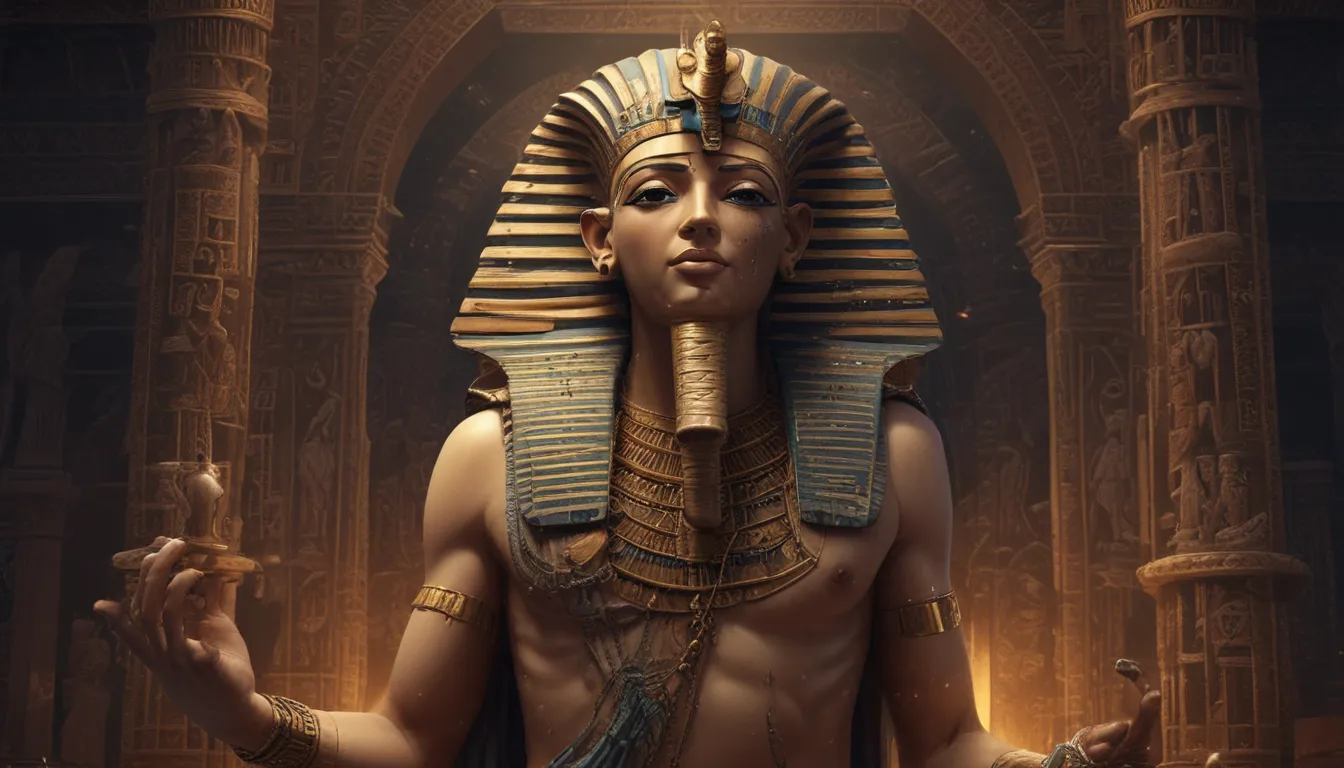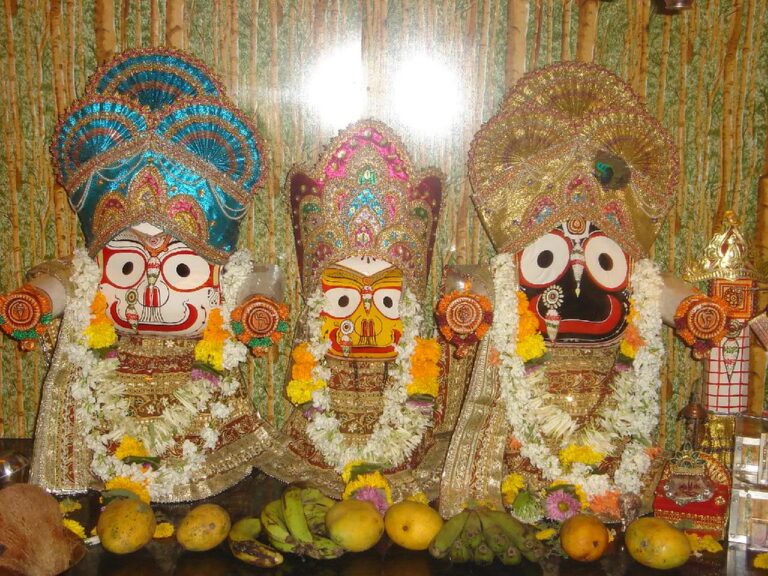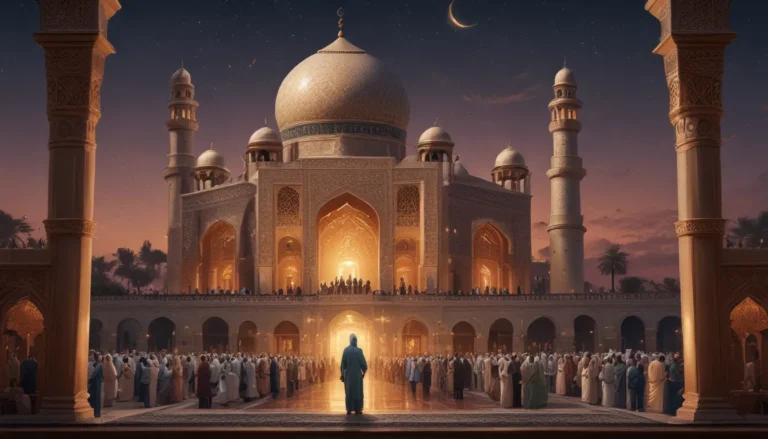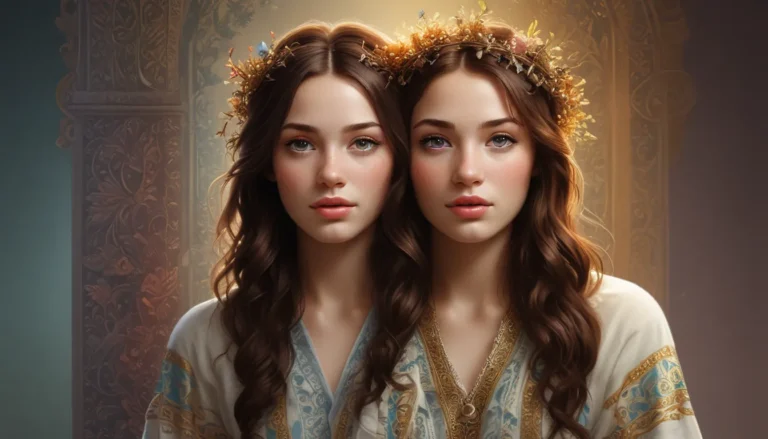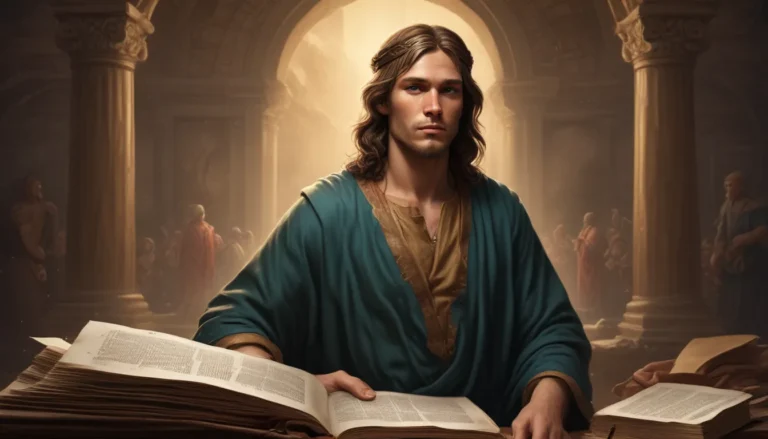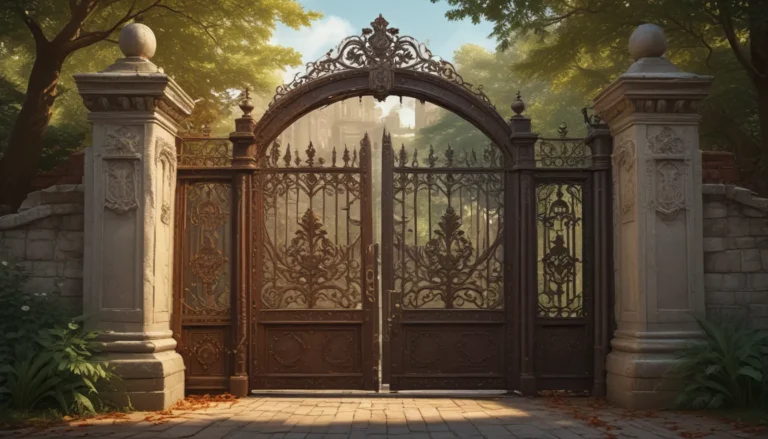The images in our articles may not match the content exactly. They are used to grab your attention, not to show the exact details in the text. The images complement the text but do not replace it.
Have you ever been intrigued by Horus, the mighty Egyptian god embodying the sky, war, and hunting? Dive into the realm of ancient Egyptian mythology as we uncover the captivating tales and intriguing facts surrounding this revered deity. From his dramatic origin story as the son of Isis and Osiris to his epic battles and enduring legacy, Horus’s legend is brimming with intrigue and mysticism. Join us on a journey back in time, where gods walked among mortals, and myths intertwined with history, as we explore 12 amazing facts that bring the legend of Horus to life.
Unraveling the Enigma of Horus
In the tapestry of ancient Egyptian mythology, Horus stands out as a figure symbolizing power, protection, and healing. Known for his iconic representation as a falcon or a man with a falcon’s head, Horus embodies royal authority and the celestial realm. Let’s delve deeper into the essence of Horus through some fascinating facts about this legendary deity:
1. Birth of Horus:
Horus was born to Isis and Osiris, two pivotal figures in Egyptian mythology. His birth story is a testament to resilience and magic, as Isis resurrected Osiris to conceive Horus. This tale of rebirth and renewal sets the stage for Horus’s destiny as a symbol of hope and restoration.
2. Symbolism of Horus:
Throughout ancient Egypt, Horus was revered as a god of the sky, with his eyes representing the sun and the moon. The right eye symbolizes the sun, while the left represents the moon, underscoring his role as a celestial figure embodying light and darkness, order and chaos.
The Epic Conflict: Horus vs. Set
One of the most captivating narratives in Egyptian mythology is the epic battle between Horus and Set, his uncle, symbolizing the eternal struggle between order and chaos. Let’s explore the dynamics of this cosmic conflict:
1. Cosmic Battle:
The rivalry between Horus and Set transcended personal vendettas, evolving into a cosmic battle for control over Egypt. Set, associated with chaos and the desert, posed a threat to the order and fertility that Horus represented, leading to a fierce showdown between the two deities.
2. Triumph of Order:
After enduring a series of contests and battles lasting 80 years, Horus emerged victorious, signifying the triumph of order over chaos. This victory not only solidified Horus’s place as a protector and ruler but also reinforced the central theme of Egyptian mythology: the eternal struggle between opposing forces.
Horus: Guardian of the Pharaoh
Beyond his celestial realms, Horus played a pivotal role in the lives of the pharaohs, embodying their divine right to rule and mediating between the gods and the mortal realm. Let’s unravel the connection between Horus and the pharaohs:
1. Living Horus:
Every pharaoh was revered as the “living Horus,” a direct descendant of the deity himself. This divine lineage affirmed the pharaoh’s legitimacy and authority, emphasizing their role as intermediaries between the earthly realm and the divine pantheon.
2. Power of the Eye:
The Eye of Horus, also known as the Wadjet, served as a potent symbol of protection for the pharaoh, warding off evil and ensuring their safety and prosperity. This sacred emblem was believed to safeguard the ruler in life and in the afterlife, underscoring Horus’s role as a guardian and benefactor.
Temples of Worship: Horus’s Reverence Across Egypt
The devotion to Horus was manifested through temples erected in his honor and annual festivals celebrating his life and victories. Let’s explore the architectural marvels and cultural traditions dedicated to the worship of Horus:
1. Temple of Edfu:
The Temple of Edfu stands as a magnificent testament to the veneration of Horus, showcasing the artistic and architectural prowess of ancient Egypt. This well-preserved temple serves as a sacred space dedicated to honoring the deity and perpetuating his legacy through rituals and ceremonies.
2. Festivals of Celebration:
Annual festivals commemorating Horus’s triumphs and protective qualities were not merely religious observances but communal gatherings that reinforced social bonds and cultural identity. These festive events celebrated Horus as a guardian and symbol of resilience, fostering a sense of unity and reverence among the people.
The Enduring Legacy of Horus: From Myth to Modernity
Horus’s influence transcends the boundaries of ancient texts and temple walls, permeating modern culture with his symbols and narratives. Let’s explore how Horus’s legacy continues to captivate and inspire people worldwide:
1. Symbol of Protection:
The Eye of Horus has evolved into a prevalent symbol representing protection, health, and restoration in contemporary society. From jewelry to artwork and tattoos, this emblem bridges the ancient mythology of Horus with the modern ethos of safeguarding and healing.
2. Cultural Resonance:
Horus’s tale of overcoming adversity, battling evil, and rising to power resonates with audiences, symbolizing the eternal struggle between good and evil, order and chaos. His character embodies heroism, divine right, and the unwavering fight against darkness, reflecting timeless themes ingrained in human storytelling.
3. Pop Culture Presence:
In the realm of popular culture, Horus has made appearances in books, movies, and video games, captivating audiences with his enduring appeal. These portrayals of the deity showcase his heroic attributes, immortalizing his legacy and inspiring new generations with tales of power, protection, and perseverance.
4. Scholarly Exploration:
Scholars and enthusiasts continue to delve into the realms of Horus and Egyptian mythology, unearthing new insights and connections to other cultures and myths. This ongoing exploration ensures that Horus’s legacy remains vibrant and relevant, inspiring intellectual curiosity and cultural appreciation for the rich tapestry of ancient Egyptian lore.
Embracing the Awe of Horus, the Sky God
As we conclude our journey into the mystical realm of ancient Egypt, we are reminded of the awe-inspiring legacy of Horus, the sky god. His symbolic significance, narrative depth, and enduring influence serve as a testament to the power of mythology in shaping cultures and civilizations. Whether you are a history enthusiast, a mythology buff, or simply curious about ancient deities, the story of Horus invites us to contemplate the complexities of human belief, spirituality, and connection to the divine. Let the tales of Horus resonate within you, bridging the past with the present and enriching our understanding of the profound mysteries that endure across time.
Conclusion
Through this exploration of Horus, the Egyptian god of power and protection, we have unearthed the layers of mythology, symbolism, and cultural resonance that define his enduring legacy. From his celestial origins to his earthly manifestations, Horus’s tale serves as a beacon of light illuminating the intricate tapestry of ancient Egyptian belief and tradition. As we partake in this journey of discovery, may the spirit of Horus inspire us to seek knowledge, embrace diversity, and cherish the timeless stories that connect us to our shared human experience.
Your Feedback Matters
At Egyptunitedtours.com, we are dedicated to providing engaging and informative content that enriches your understanding of ancient Egyptian history and mythology. Your feedback and contributions play a vital role in maintaining the quality and authenticity of the facts we share. Join us in our mission to explore, learn, and appreciate the wonders of ancient Egypt, guided by a commitment to accuracy, credibility, and the enduring legacy of Horus, the sky god.
